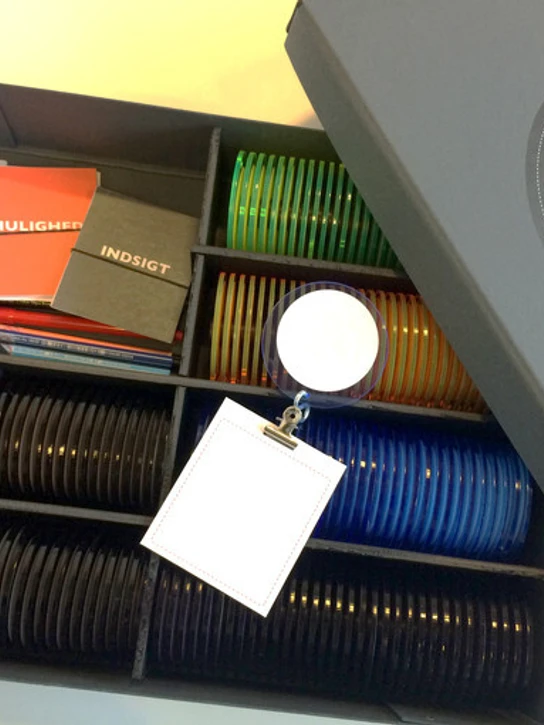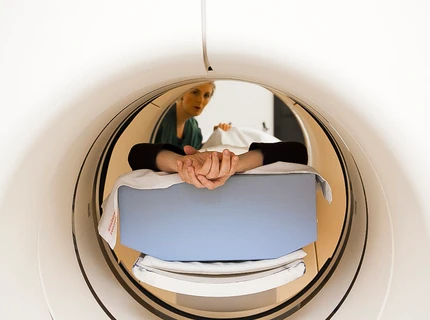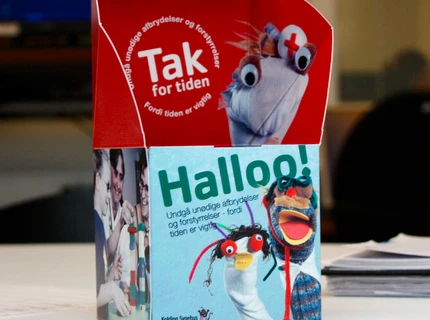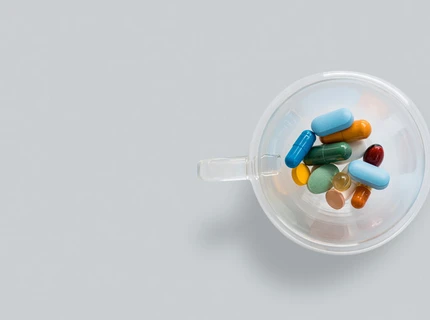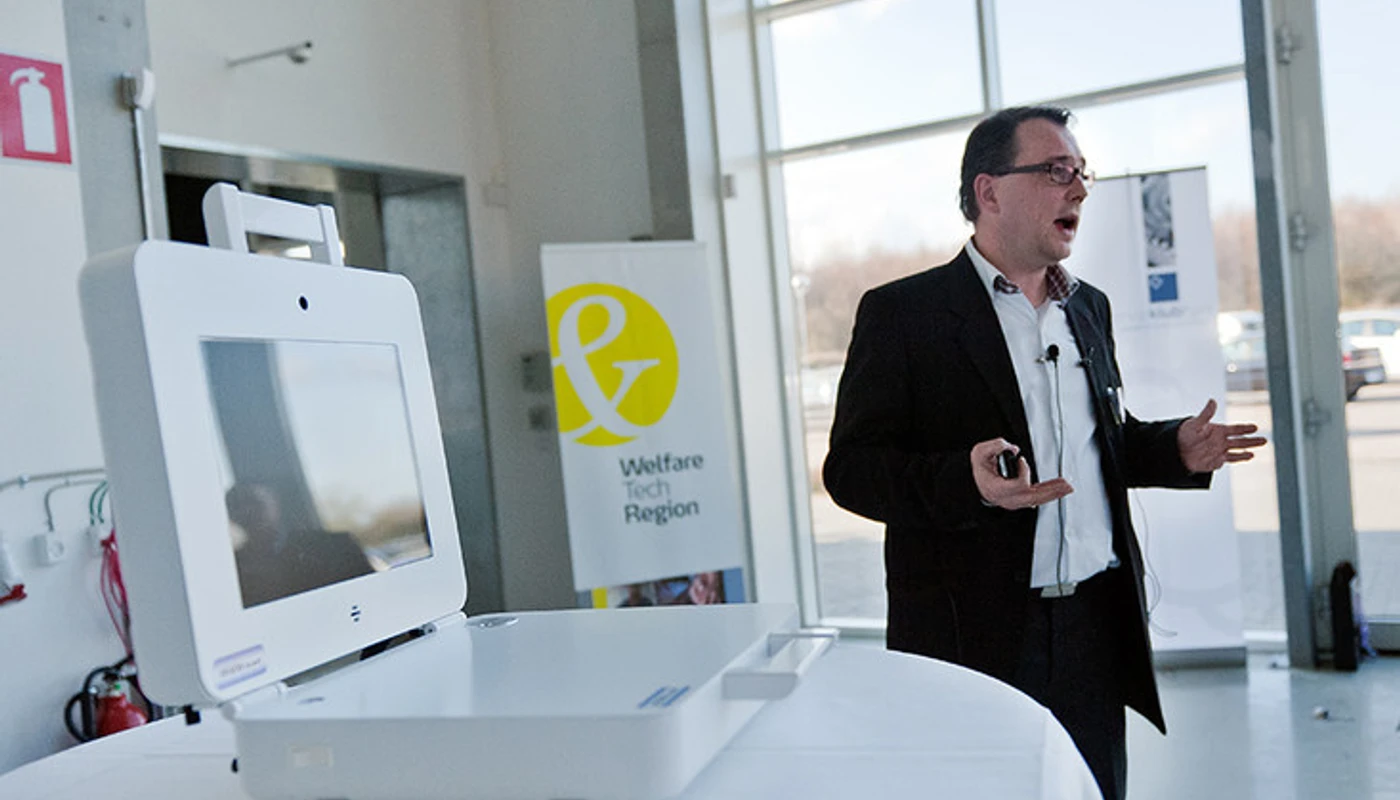
Help for COPD patients
- Participants from Kolding School of Design
-
Anne Carstensen
- Project period
- May - Dec 2014
- Project management
Anne Carstensen
- LAB
- Social Design
- LAB theme
- Ongoing-ness
- Collaboration partners
- Medisat
Trefor - External links
- Anne Carstensen
About
COPD is a chronic disease that causes poor lung function including coughing, shortness of breath and fatigue. In Denmark there are approx. 430,000 citizens who suffer from COPD – almost half are unaware that they have the disease.
Every day 16 Danes die of COPD, and Denmark holds the European record in COPD deaths. In collaboration with Odense University Hospital (OUH) the company Medisat (a subsidiary of Trefor), is in charge of the project the Patient Suitcase on the island of Funen.
The Patient Suitcase enables a patient with, for example, COPD, to be discharged but still stay in touch with the hospital. With the help of the Patient Suitcase, a patient who is looking at a screen in her own home can be attended to by a specialised nurse, who is still at the hospital. The Patient Suitcase is also linked to various equipment that measures lung function and oxygen absorption among other things.
The experience from this telemedical project has been positive, and now the question is whether digital healthcare could be introduced not only for patients with severe COPD but also for citizens with mild to moderate COPD.
MEDISAT was recently bought by Trefor, with whom Design School Kolding has concluded a collaboration agreement. According to this agreement we intend to focus on investigating the needs and opportunities as well as the barriers presented by digital prevention and treatment of citizens with mild to moderate COPD.
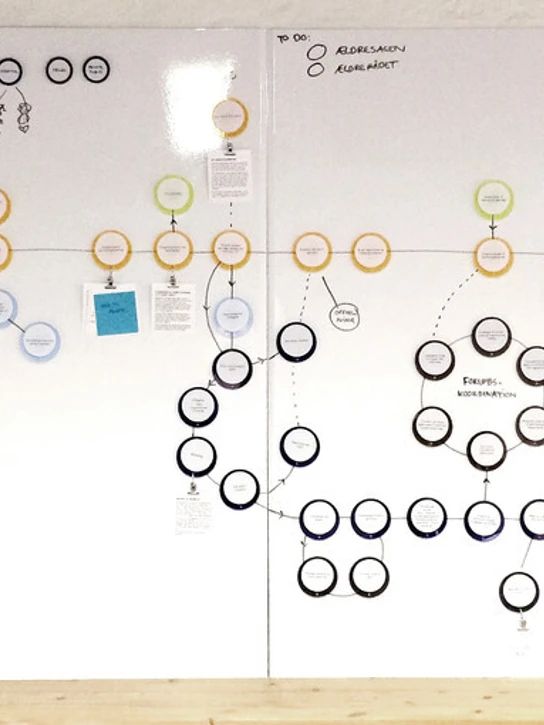
Goal
The purpose of the project is to use design methods to gain new insight into the world and the needs of citizens who are living with COPD and also acquire an understanding of the complex market within the welfare system in which the user and the customers are two different entities that may have divergent interests.
The LAB for Social Inclusion at Design School Kolding takes its starting point in the Lab’s experience in developing and applying structured methods to identify different user perspectives and, based on a series of interviews, we map a user's journey through a COPD treatment and her meeting with the various actors.
The purpose is to provide a detailed overview of how a given system works and where there is room for improvement/optimisation. In addition, the project contributes to a common understanding and insight into the complex reality in which an enterprise operates. In the course of the project, interviews have been conducted with COPD patients/citizens, the municipal visiting nurse service, general practitioners and relevant hospital departments.
Outcomes
The project was concluded with a workshop for Medisat employees in December 2014. Based on the user’s journey the focus was on identifying new opportunities for the company to create new business opportunities and value-creating solutions targeting COPD treatment, detection and prevention.
The follow-up In January 2015 consisted of a final submission of insights as well as a physical 'user travel kit', which suggests that Medisat intends to continue to work on the coverage, understanding and visualisation of the market actors and future opportunities.
User travel kit Display of the user’s journey
